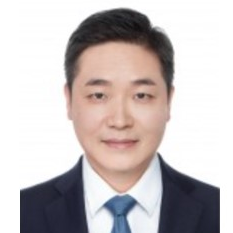Wave Energy Converter Mooring System
A special issue of Journal of Marine Science and Engineering (ISSN 2077-1312). This special issue belongs to the section "Coastal Engineering".
Deadline for manuscript submissions: closed (31 October 2023) | Viewed by 1136
Special Issue Editors
Interests: fluid and structure interaction; mooring analysis; reliability engineering; offshore renewables; hydrodynamics; flow-induced vibration; health monitoring
Interests: ocean renewable energy utilization; hydrodynamics, hydraulic transmission and automatic control; condition monitoring and fault diagnosis
Special Issues, Collections and Topics in MDPI journals
Interests: offshore renewable energy; hydrodynamics; computational fluid dynamics; mooring analysis; offshore platform
Special Issue Information
Dear Colleagues,
In the pursuit of meeting the world's energy demands, a multitude of research endeavors have been devoted to exploring floating wave energy converters. Ascertaining the optimal position of these floating devices is predominantly determined by the mooring system used. Given the diverse forms and natures of wave energy converters, their respective mooring systems must be designed to address specific requirements.
Designing an appropriate mooring system for wave energy converters is crucial in achieving optimal performance, stability, and reliability. This Special Issue underscores the following topics: nonlinear problems in wave energy mooring systems and the corresponding mathematical models; efficient arrangement of mooring lines to improve safety, save space, and reduce costs; designing mooring systems specifically for wave energy converters in shallow waters; development of novel mooring systems that cater to the unique requirements of varying wave energy converters; the coupling effect in mooring systems; health monitoring of mooring systems; reliability and risk associated with mooring systems; smart maintenance strategy of mooring systems; and other theoretical, experimental, or numerical research pertaining to mooring systems for wave energy converters.
Through these investigations, we aspire to further promote the development of efficient and reliable floating wave energy technologies.
Dr. Wenchi Ni
Dr. Dahai Zhang
Dr. Yong Ma
Dr. Liangbin Xu
Guest Editors
Manuscript Submission Information
Manuscripts should be submitted online at www.mdpi.com by registering and logging in to this website. Once you are registered, click here to go to the submission form. Manuscripts can be submitted until the deadline. All submissions that pass pre-check are peer-reviewed. Accepted papers will be published continuously in the journal (as soon as accepted) and will be listed together on the special issue website. Research articles, review articles as well as short communications are invited. For planned papers, a title and short abstract (about 100 words) can be sent to the Editorial Office for announcement on this website.
Submitted manuscripts should not have been published previously, nor be under consideration for publication elsewhere (except conference proceedings papers). All manuscripts are thoroughly refereed through a single-blind peer-review process. A guide for authors and other relevant information for submission of manuscripts is available on the Instructions for Authors page. Journal of Marine Science and Engineering is an international peer-reviewed open access monthly journal published by MDPI.
Please visit the Instructions for Authors page before submitting a manuscript. The Article Processing Charge (APC) for publication in this open access journal is 2600 CHF (Swiss Francs). Submitted papers should be well formatted and use good English. Authors may use MDPI's English editing service prior to publication or during author revisions.
Keywords
- single-point mooring
- multi-point mooring
- elastic mooring
- shared mooring
- coupling effect
- health monitoring
- mooring system optimization
- hydrodynamic analysis
- mathematical modeling
- model experiment
- numerical simulation








